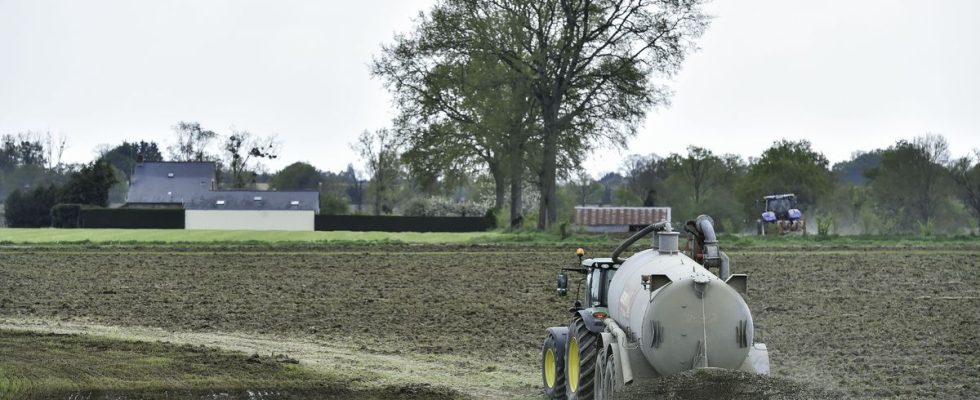The government will have to review its copy on nitrates. In a note adopted on November 23, the French Environmental Authority (AE) criticized the measures taken, judging that the “nitrate plans” are “not in line with the environmental challenges”.
These plans, adopted within the framework of a European directive, aim to limit air and water pollution through the use of nitrogen, produced by livestock and contained in synthetic fertilizers. The recently adopted 7th generation of “nitrate action programs” “does not meet the primary objective of the directive” and “more generally, is not in line with the challenges of reducing water and environmental pollution. air by nitrogen”, estimates the Environmental Authority in this note published Monday.
An “absence of desire to change a very degraded situation”
The AE is an independent body responsible since 2009 for evaluating impact studies. She chose to express herself “noting that the weak response given to the recommendations of previous opinions has made it possible to improve neither the environmental assessments of the action programs nor the programs themselves”. She “considers it unlikely” that the nitrate plan in force “will allow France to improve water quality and reduce atmospheric emissions” and points to “the lack of desire to change a very degraded situation”.
“Water pollution by nitrates is largely linked to the excess of synthetic nitrogen fertilizers used by agriculture as well as to the spreading of livestock effluents,” explains the Authority. The application of the 1991 European “nitrates” directive “is still failing in France”, according to the note, which recalls in particular that France was condemned by the Court of Justice of the European Union in 2014.
The authority notes a “patent insufficiency” of the programs adopted since with regard to the objective of the directive. It also points to “the weakness of the results of previous plans”, “a reflection of faulty monitoring systems”.
Decline in fertilizer use
“The entire (monitoring) exercise appears essentially formal and driven at best by a desire for continuity,” criticizes the note, before adding: “It is a question of ensuring that the obligation to develop programs required by European Union law is satisfied without them having a concrete translation or drawing a direction towards the effective improvement of the situation. »
France, Europe’s leading agricultural power, consumed up to more than 18 million tonnes of fertilizer (in 2013) before seeing its use decline (less than 11 million tonnes in 2021-22). Over 30 years, the reduction is 45%, according to Unifa, which brings together fertilizer producers.

